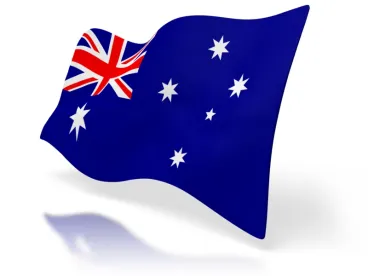AUSTRALIAN LABOUR, EMPLOYMENT AND WORKPLACE SAFETY ALERT
As we reach 1 July 2021, there is a lot happening in the area of employment-related legislation, including award and minimum wage increases, increases to superannuation and the annual change to the high income threshold. Victoria's new wage theft bills also come into effect this week.
An explanation of the changes is set out in the full article. We have also prepared a user friendly summary for you to refer to throughout the 2021/22 financial year which can be found here.
MINIMUM WAGE INCREASES STAGGERED AGAIN
For the second year in a row, the Fair Work Commission has taken a staggered approach to minimum wage increases in modern awards.
In response to the differing impact of the COVID-19 pandemic on a number of sectors of the Australian economy, the Fair Work Commission took the extraordinary step of implementing the national minimum wage increase in three tranches over the second half of 2020 and the start of 2021.
Once again, given the ongoing impact of the pandemic on certain sectors, the Fair Work Commission has repeated this approach. A blanket 2.5 percent increase will apply to the national minimum wage and the minimum wages in all modern awards, but the timing of this will vary depending on which modern award applies to your business.
From the first full pay period after 1 July 2021, the national minimum wage (which applies to all award-free employees in Australia) will rise to AU$772.60 per week, or AU$20.33 per hour. As in previous years, casual employees will have a minimum 25 percent loading, which equates to a casual minimum wage of AU$25.41 per hour.
For modern award-covered employees, minimum wages will increase by 2.5 percent on the first full pay period after:
-
1 July 2021, for the majority of modern awards
-
1 September 2021, for employers covered by the General Retail Industry Award 2020
-
1 November 2021, for a number of specified awards, including (but not limited to) several awards applying to the aviation industry, tourism industry, live performance, hair and beauty, hospitality, sport and live performance, industries hardest hit by the pandemic.
A full list of these awards can be found in the summary decision.
SUPERANNUATION GUARANTEE INCREASE
From 1 July 2021, the minimum superannuation guarantee contribution rate will rise from 9.5 percent to 10 percent.
It is important to note that as superannuation is calculated on the payment date rather than the earned date, any payment made on or after 1 July 2021 will require the new rate of 10% to be applied, even if the relevant work was performed prior to that date.
Depending on the specific wording of your employee contracts, the new super rate may require you to provide an increase in the total remuneration package paid to employees. For employers who have contracts that contemplate such an increase or provide for compensation on a package basis, it may be possible to comply with the new requirements by applying a reduction in take-home salary.
The super rate is set to progressively increase by 0.5 percent each year, until it reaches 12 percent by 1 July 2025. Minimum super rates for each financial year can be found at the Australian Taxation Office website.
NEW UNFAIR DISMISSAL THRESHOLD
From 1 July 2021, the high income threshold in unfair dismissal cases will be increased to AU$158,500, and the compensation limit will be increased to AU$79,250.
The high income threshold is important to determine a non-award employee's eligibility to access the unfair dismissal provisions in the Fair Work Act.
A non-award covered employee who has an annual rate of earnings up to AU$158,500 may bring a claim for unfair dismissal under the Fair Work Act section 394. Those who earn over this amount cannot. It is important to remember that this threshold does not apply to employees who are covered by awards and enterprise agreements. They may access the unfair dismissal provisions irrespective of their annual earnings.
The maximum compensation that can be awarded for an unfair dismissal claim is also impacted as a result of this change. It is calculated based on 26 weeks of the employee's annual rate of earnings or 50% of the high income threshold being AU$79,250, whichever is lower.
This figure is adjusted annually on 1 July. The high income threshold can be found on the Fair Work Commission website.
NEW WAGE THEFT LAWS IN VICTORIA
The Wage Theft Act 2020 (Vic) (the Act), which was actually passed in June 2020 (when we were all somewhat preoccupied with COVID-19) is only now coming into operation on 1 July 2021. The aim is to hold employers and officers who dishonestly withhold employee entitlement to account with tough new penalties including potential imprisonment.
The laws criminalise wage theft and make it an offence for an employer to:
-
dishonestly withhold employee entitlements or authorise or permit another person to withhold the whole or part of an employee entitlement
-
falsify an employee entitlement record or expressly or impliedly authorise or permit another person to so falsify, with the view to dishonestly obtain financial advantage
-
fail to keep, or expressly or impliedly authorise, or permit another person to fail to keep, an employee entitlement record, with the view to dishonestly obtain a financial advantage.
It is a defence to a withholding offence if the employer or officer can prove that, before the alleged offence, the employer had exercised "due diligence" to pay the employee entitlements.
The new Wage Inspectorate Victoria as a statutory body will investigate, prosecute and enforce the new offences. Employers found guilty of wage theft and record keeping offences currently face penalties of up to AU$991,320 for companies and individuals may face fines up to AU$198,264 and up to 10 years jail.
Other states have also introduced or are looking at similar wage theft legislation. In Queensland, the Criminal Code and Other Legislation (Wage Theft) Amendment Act 2020 was passed last year. This introduced similar wage theft provisions to Victoria through the state's Criminal Code, rather than as a separate piece of legislation.
It is not yet clear how state laws on wage theft will interact with wage compliance laws under the Fair Work Act.
There is no doubt that Australia's wage laws are complicated and onerous. Now is an opportune time for employers to check out the new award rates, apply the superannuation increases taking into account individual contract provisions and review their wage systems, processes and records to ensure they are compliant.







 />i
/>i

